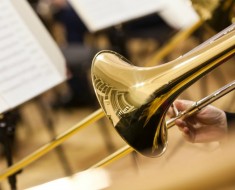The Grosse Fugue is a single-movement composition originally intended as the final movement of his Opus 130 quartet. Strongly advised by his publisher to sugar the pill by adding a new finale, he decided the fugue would be quartet on its own. As his Opus 133. There are four sections to the 20 minute work, so on paper at least there is the appearance of a sonata. Famous for its extreme technical demands on the players as well as for its unrelentingly introspective nature, it remains a problematic work and – for me – hard work. But very worthwhile, and the more I listen to it, the less daunting it becomes. It is music that really needs to be seen in performance. As any fugue, the give and take of the players is part of the occasion. Sadly my recording in mono can’t create the impression of four players in conversation that stereo provides.
The dramatic and insistent leaping statements of the Overture and its development is like a cry for attention – and for help? There is something infinitely moving about the almost brutal thrust to the music as if Beethoven is struggling with unknown adversaries, but wants you to know that he will be the victor.
An early performance was coolly received by the audience, and Beethoven referred to them scathingly as ‘cattle and asses’! Clearly for him it was a major work. And all of it written from his mind straight to the score, without the luxury of testing it for sound. By this time he was completely deaf.
The work is now considered to be among his greatest achievements. Stravinsky said it was ‘an absolutely contemporary piece of music that will be contemporary forever. Its reputation as formidably difficult to like, ignores the several beautiful and indeed wistful themes that keep emerging from the violent energy of the work, and seem to influence the galloping final bars, full of life and hope, that end it.
A comment (mine) that the Grosse Fugue marks the end of the classical period in serious music and the begiining of the modern, is a bit trite, but I do feel that this is music that draws a line under the past, preparing and making way for the future.
B.R.
*A librarian in a religious school in the suburbs of Philadelphia has recently stumbled across a handwritten score of Opus 133. The 80-page manuscript is dated 1826 (the year before he died), and is written in brown and black ink, full of annotations and corrections.



